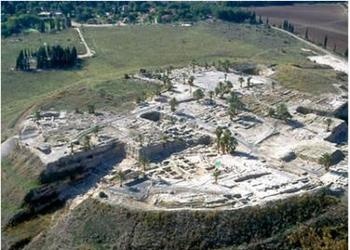In the News
Archaeology, Biology and Megiddo

Having on-site scientific labs and equipment will ideally allow archaeologists to more rapidly analyze what is contained in the layers that have built up over the centuries and identify where each layer fits in the time line.
Among academics, two theories surround the site. One purports that it was once a powerful administrative and military center during the time of King David and King Solomon in the 11th and 10th centuries B.C., as the Bible indicates. The opposing theory says that this was not so, and that David and Solomon really didn't have much of an empire. Those with this view claim that Megiddo flourished at a later date under another empire (Haim Watzman, "Chemists Help Archaeologists to Probe Biblical History," Nature.com, Nov. 30, 2010).
If you believe God and that He inspired the Bible, then the Bible provides your starting point in analyzing history. Science alone won't completely answer the questions of history. Scientific research—if done properly—can be useful in establishing historical details, but it is also possible to come to a wrong conclusion.
